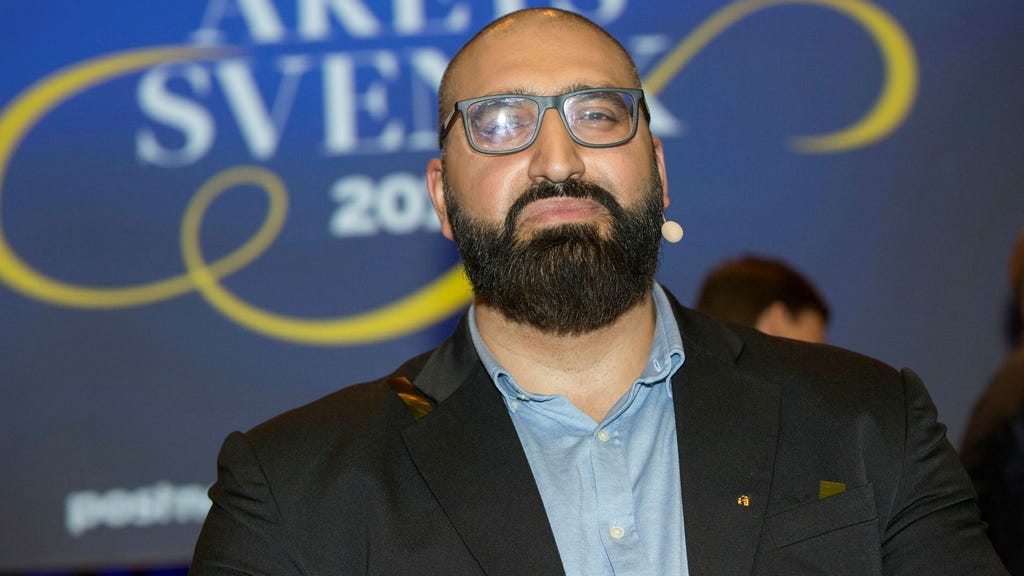Hamid Zafar’s Controversial Appointment as Principal at Nordic International School
Hamid Zafar, a figure once lauded as "Swede of the Year" for his transformative work in education, has been appointed as the new principal of Nordic International School in Trollhättan, Sweden. This appointment, however, is shrouded in controversy due to Zafar’s past online activities, where he used pseudonymous accounts to express discriminatory views against Jews and homosexuals. The decision by Nordic International School to hire Zafar despite this history has sparked debate and raised questions about redemption, accountability, and the role of past actions in evaluating an individual’s suitability for a leadership position, especially within the sensitive context of education.
Zafar’s career in education has been marked by both significant achievements and deep controversy. He gained recognition for his leadership at Sjumilaskolan in Biskopsgården, Gothenburg, a school known for its challenging environment, which he successfully transformed into a positive learning space. His accomplishments extended beyond school leadership, including roles as an education director at the municipal level and as an investigator for the Swedish National Agency for Education (Skolverket). This trajectory of success culminated in his recognition as "Swede of the Year" in 2018 and his invitation to deliver a prestigious summer radio address in 2019. These accolades solidified his public image as a leading figure in Swedish education.
However, this carefully constructed image of a successful educator crumbled in 2020 when a leading Swedish newspaper, Dagens Nyheter (DN), exposed Zafar’s use of anonymous social media accounts to propagate hateful and discriminatory rhetoric. Between 2011 and 2015, Zafar, under the pseudonym "Mikael Hakim," repeatedly attacked individuals he labeled as "Zionists," using derogatory terms like "Zionist donkey" and "Zionist dog." These revelations starkly contrasted with his public persona and sparked widespread condemnation. The exposure of these online activities forced Zafar to confront the consequences of his actions and raised questions about the sincerity of his public pronouncements on inclusion and tolerance.
Nordic International School’s decision to hire Zafar, despite his controversial past, has been met with mixed reactions. Damian Brunker, the Head of Primary Schools at Nordic International Schools, defended the appointment, highlighting Zafar’s proven track record in school leadership and his ability to turn around challenging school environments. Brunker emphasized Zafar’s documented successes and expressed confidence that his experience would be invaluable in his new role. This defense of the appointment suggests a belief in Zafar’s potential to contribute positively to the school despite his past transgressions. Brunker also underscored the school’s belief in "people’s ability to change," indicating a willingness to offer Zafar a second chance.
Zafar himself acknowledged the controversy surrounding his appointment, expressing gratitude for the trust placed in him by Watma Education, the parent company of Nordic International School. He emphasized his commitment to providing a quality education for all students and acknowledged the offensive nature of his past online statements, which he claims to have disavowed. This statement of contrition and commitment to his educational mission forms a key part of the narrative surrounding his appointment, suggesting an attempt to move forward and focus on his professional responsibilities. However, the impact of his past actions continues to cast a shadow over his present endeavors.
The case of Hamid Zafar raises complex questions about the nature of redemption, the weight of past actions, and the evaluation of character in professional contexts. While some may argue that individuals deserve a second chance to demonstrate growth and change, others may question the appropriateness of entrusting a leadership position, particularly within the field of education, to someone with a history of expressing discriminatory views. The debate surrounding Zafar’s appointment highlights the ongoing tension between recognizing past mistakes and offering opportunities for rehabilitation. It also underscores the challenges of assessing the sincerity of apologies and the potential for genuine transformation in the face of past harmful actions. The long-term impact of this controversial appointment on Nordic International School, its students, and the broader educational community remains to be seen.














